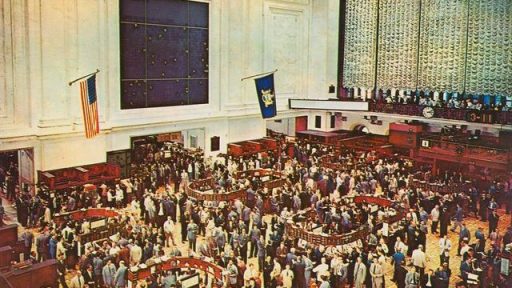- Home
- >
- Great Traders
- >
- The ten greatest traders of all time and their trades

The ten greatest traders of all time and their trades

Although the risk of management in many of these transactions is not what investors would expect, we can see that many of these transactions are made within the current trend. This clearly highlights the dangers and difficulties that you face if you trade against the trend and the potential wealth that you can accumulate along with the trend without limiting your profits. More than example transactions here have been slow to build. Most of them were made in an instant reaction to exit traders. But you cannot dispute the facts surrounding the transactions and say that they are arbitrary or that they are completely lucky. They have come about through decades of research, study, and waiting for exactly this unique and appropriate moment in which they have taken hold.
Paulson's pledge against subprime mortgages brought his fund $ 15 billion in 2017. He is one of the few managers who made money at the time. Most of them shorted too early, lost money and were lost. This was the decision of his life until the others paid due attention to the initial warning signs.
Jesse Livermore - his 1929 paint deal. He didn't need computer models, technical indicators or derivatives to win $ 100 million (today's $ 1.2 billion) at a time when everyone else was buying and losing their money, respectively. It was an unusual day when Jesse went home to his wife who thought he was going bankrupt. However, this was his second best trading day in his history.
John Templeton made serious investments in Japan in 1960 when the 30-year economic cycle of continuous progress began. Templeton was one of the first foreign investors in the country. At one point, he invested more than 60% of his fund in Japanese assets. Since its founding in 1954, the Templeton Growth Fund has grown by an impressive 16% a year until Templeton retired in 1992. This makes the fund the second best performing fund for the second half of the 20th century. A pledge of $ 100,000 in 1954, with reinvested funds, became $ 55 million by the end of 1999.
George Soros breaking Bank of England. He shorted the £ 10bn pound and forced the UK to withdraw from the European Exchange Rate Mechanism (ERM) on September 16, 1992. Soros made $ 1bn, which was then considered impossible.
Black Monday shorts. Paul Tudor Jones achievement. He predicts in a very accurate way that the market is about to collapse and chart patterns. Paul Tudor Jones made enormous crash profits in the fall of 1987. Jones tripled his futures money by shorting them, making $ 100 billion after the DOW sank 22% in one day.
In 2003, when oil was trading at about $ 30 and the economy was just recovering from the dot-com crisis, Andrew Hall bet the price would rise to $ 100 a barrel in the next five years. Five years later, the price of oil not only reached $ 100, but passed them in 2008. At the time, Hall worked for Citigroup, which made significant profits, and he himself raised $ 100 million as a bonus for this and his other deals. He predicted the price target and the time period after which he purchased futures to earn a lot with the move up to $ 100 or to expire at no value. He did the impossible - he foresaw the cost and time from which he made the most of it.
In 2009, David Tepper bought bank shares that were heavily impaired. Bank of America increased its value four times and Citigroup three times after reaching the bottom earlier in the year. That was enough to bring Tepper's hedge fund around $ 7 billion in profits. His personal share was $ 4 billion. His bet was that the banks would be rescued, not nationalized. He was right.
Jim Chanos' exact shots were in the top ten and he made a significant difference. More precisely than the collapse of Enron. Other examples of his successful short deals are his bets against Baldwin - United, Tyco International, Worldcom and the recent construction company KB Home.
Jim Rogers noticed the bull market in raw materials back in 1990. In 1996 he created the Rogers International Commodity Index. It then further develops the index so that it can be invested in it. Since 1998, the index has yielded 290% by the end of 2010. For comparison, the S & P500 yielded a yield of 10% over the same period.
Louis Bacon literally crashed the market in 1990. He expected Saddam Hussein to invade Kuwait. Bacon held long positions in oil and short in stocks. Thus, its fund realized a yield of 86% in the same year. In the next, he also correctly predicted that the United States would conquer Iraq and that the oil market would recover.
We must always be ready for that once-in-a-lifetime deal. Open your eyes to four. She can wait for you today.
 Trader Martin Nikolov
Trader Martin Nikolov Read more:
If you think, we can improve that section,
please comment. Your oppinion is imortant for us.











